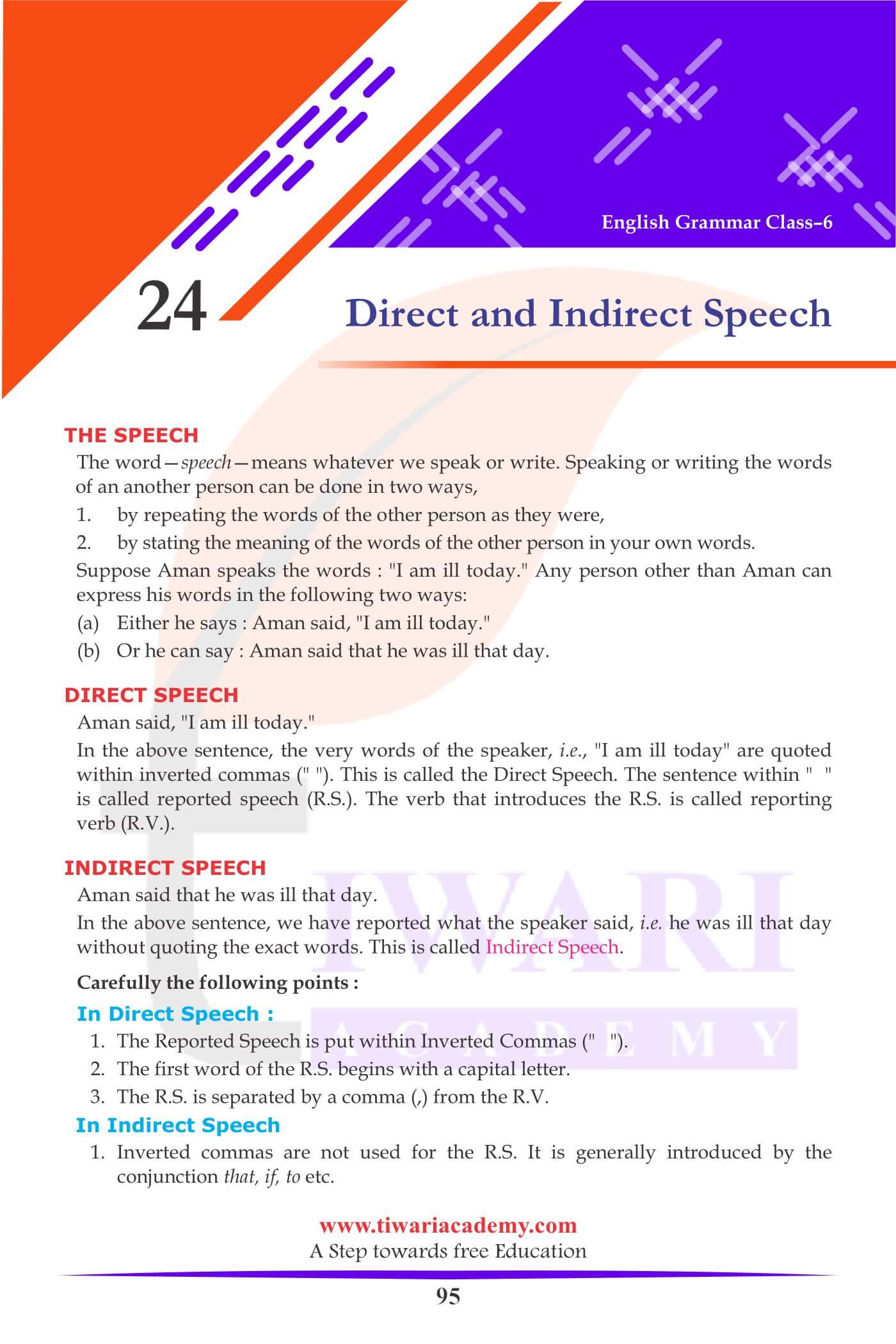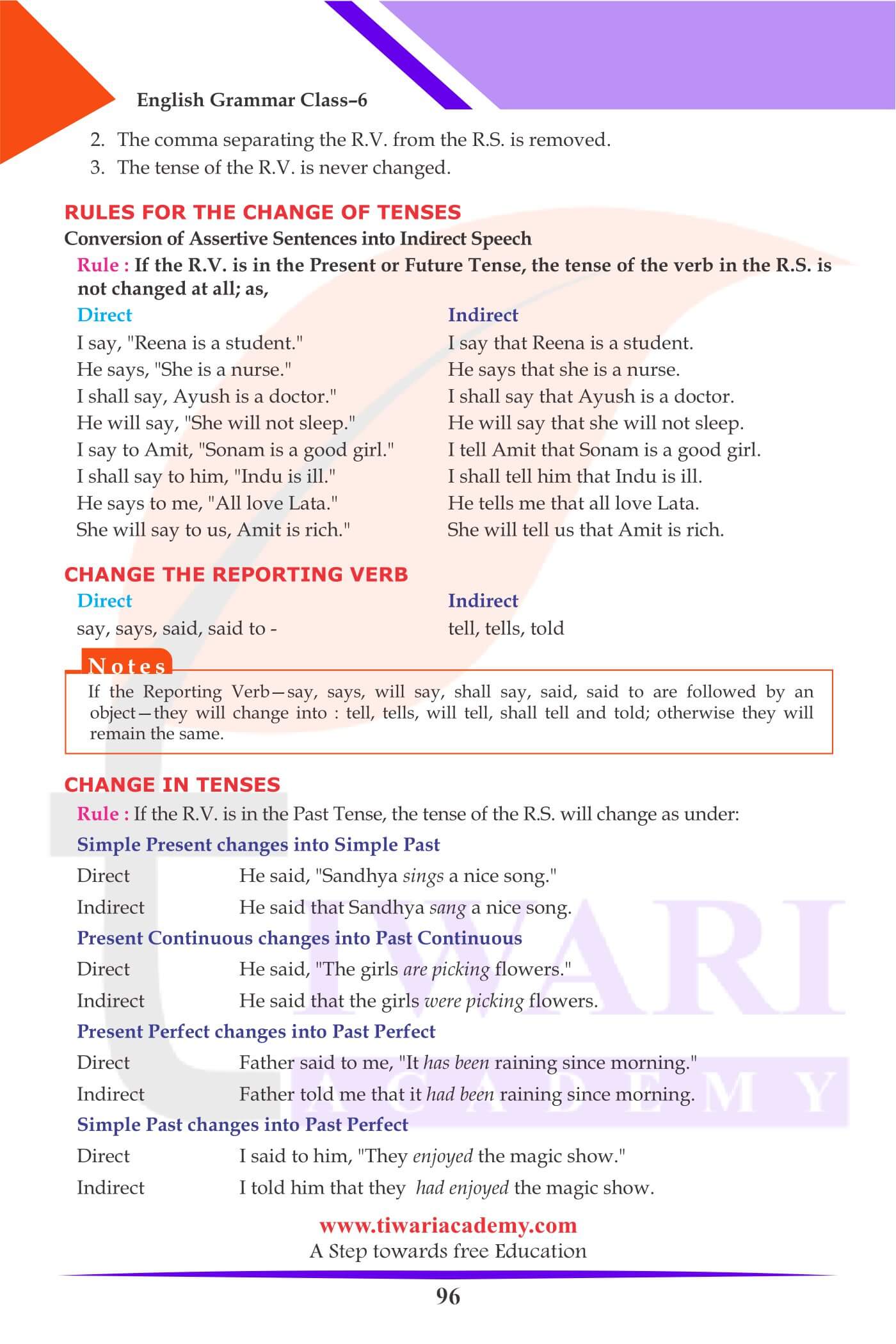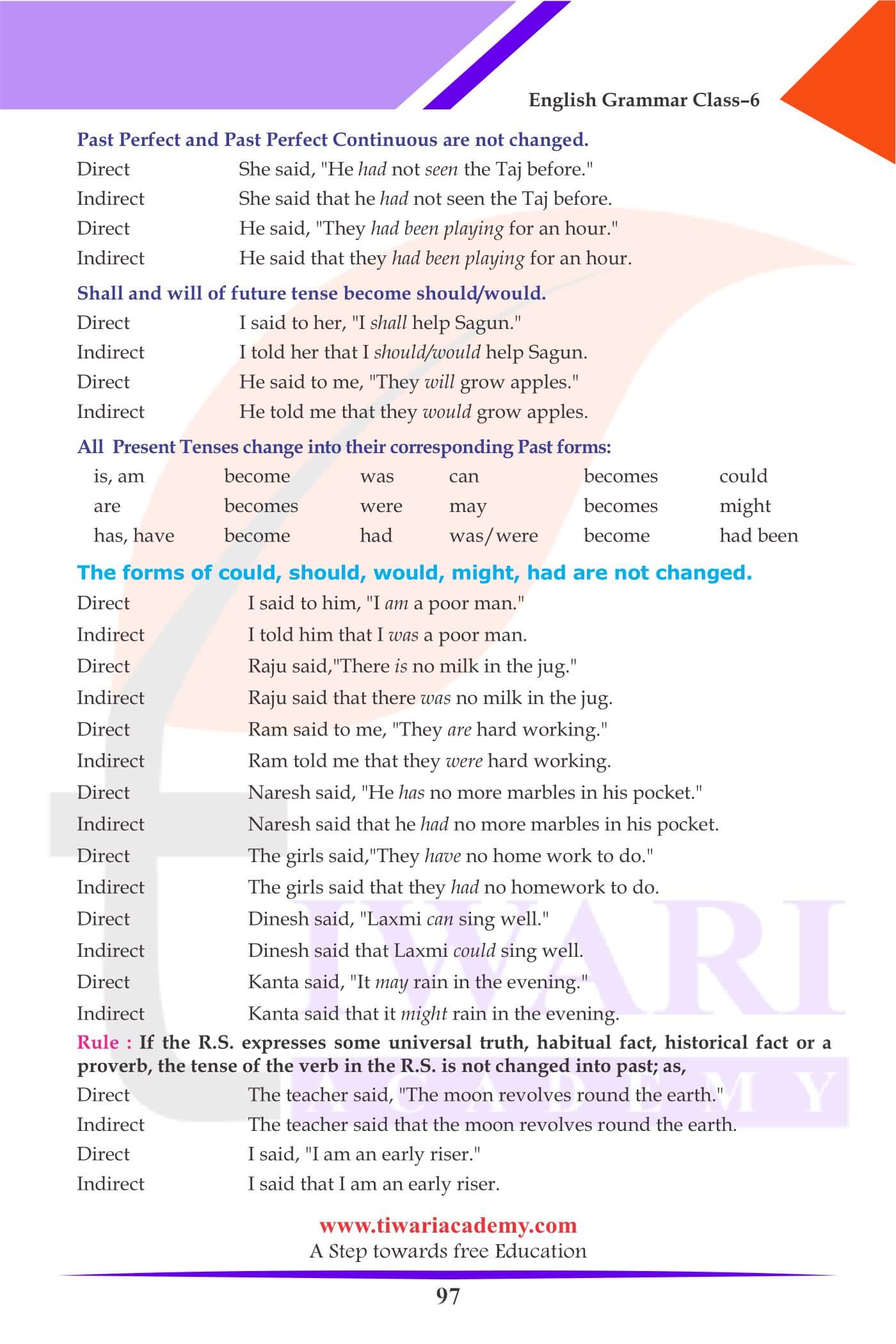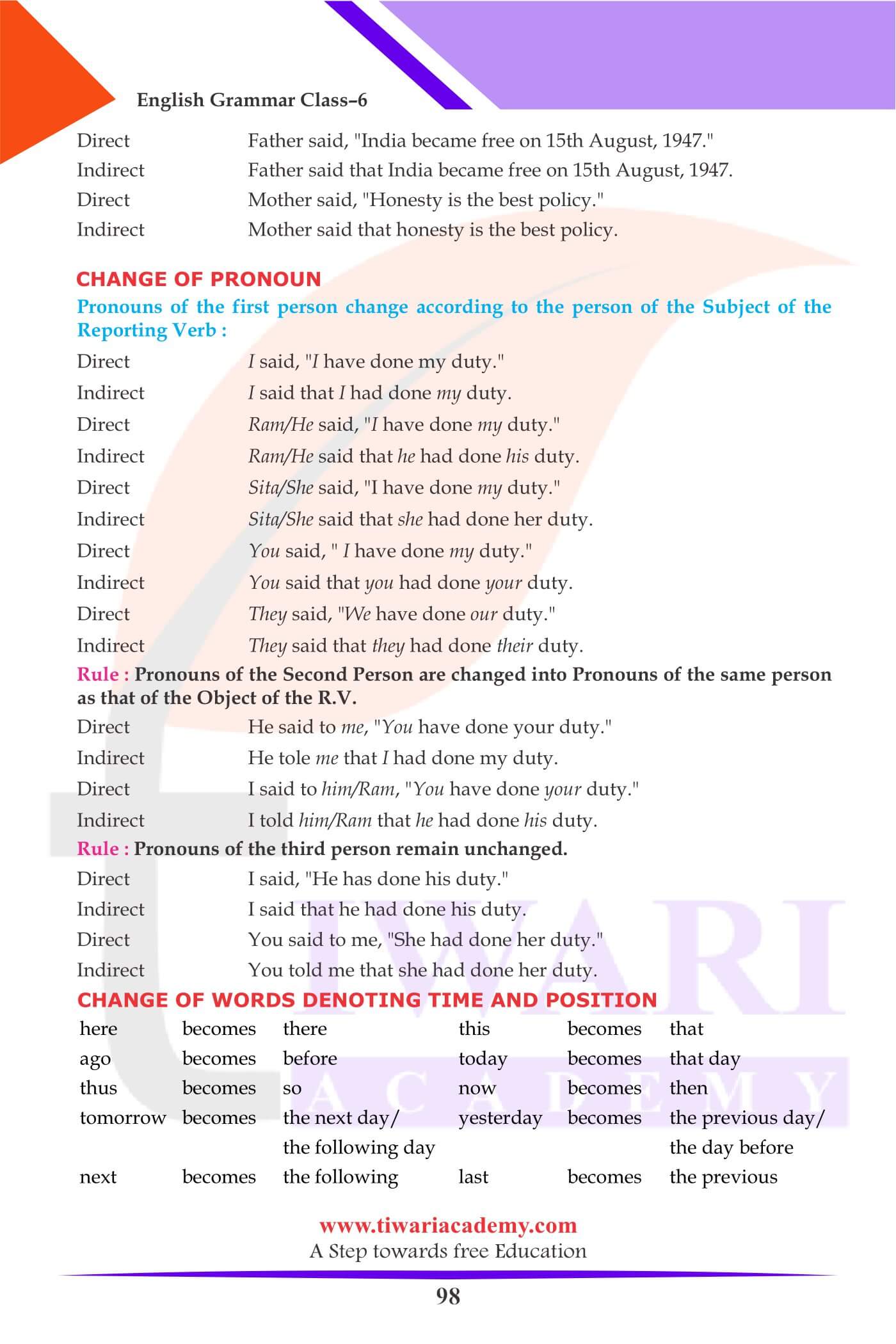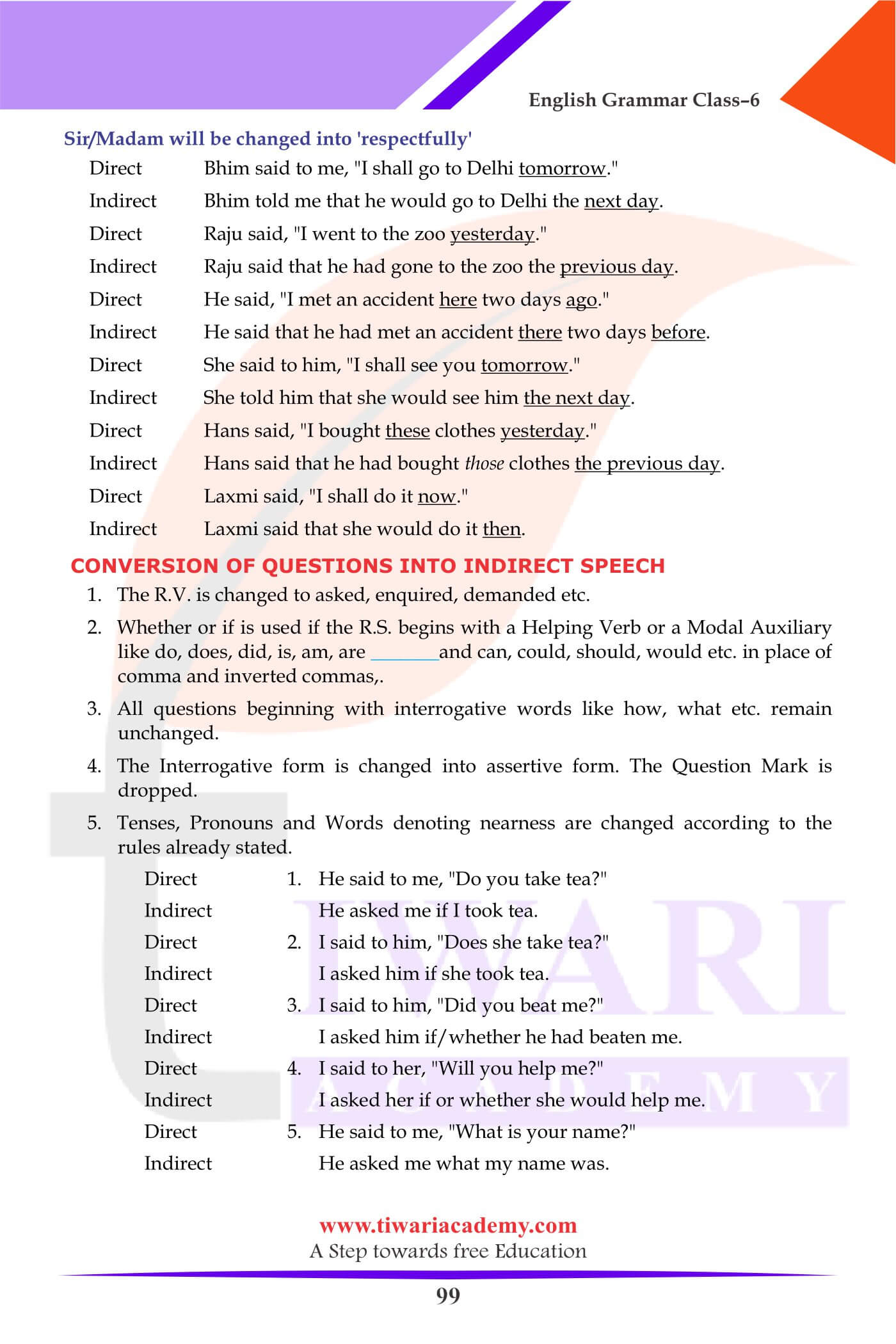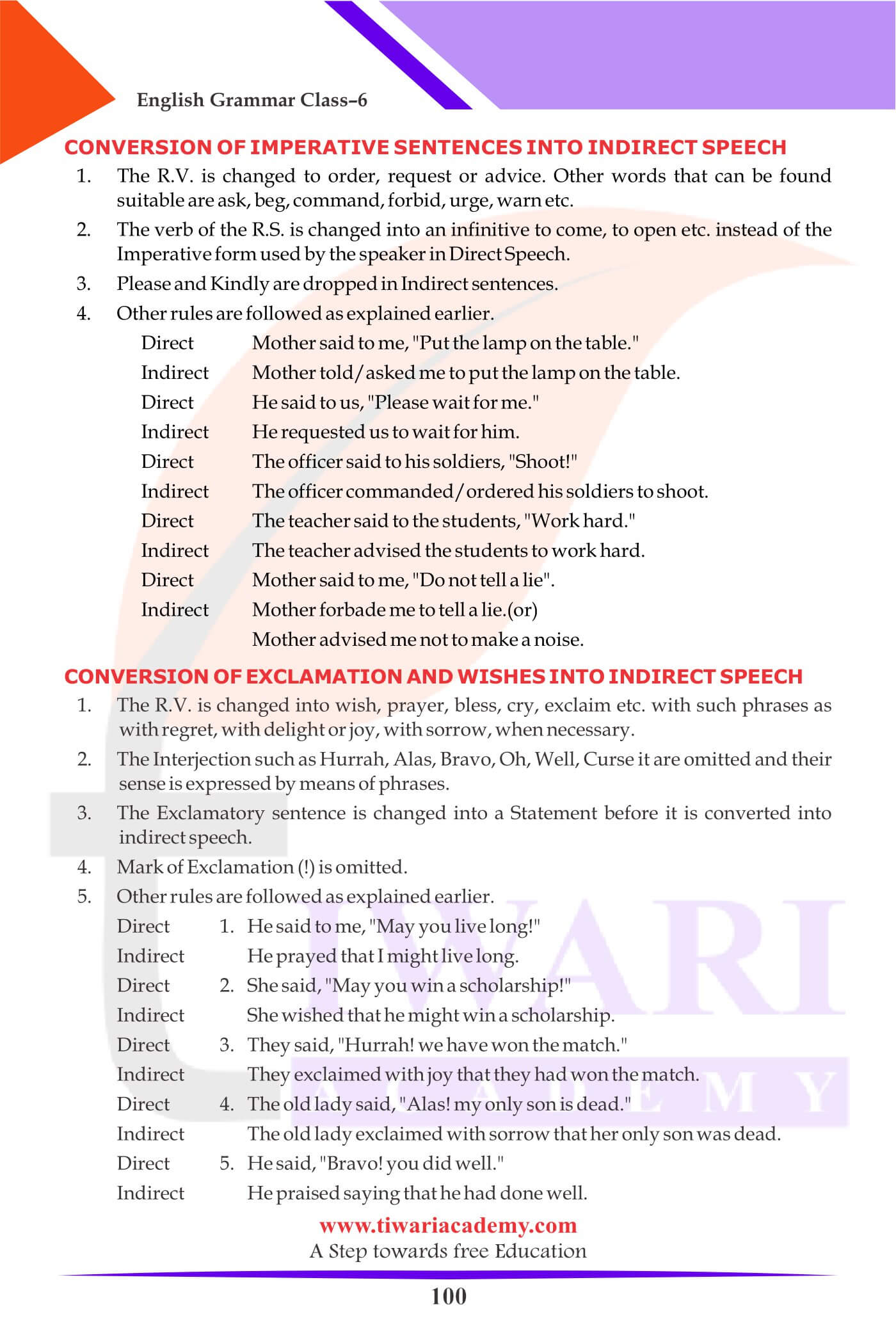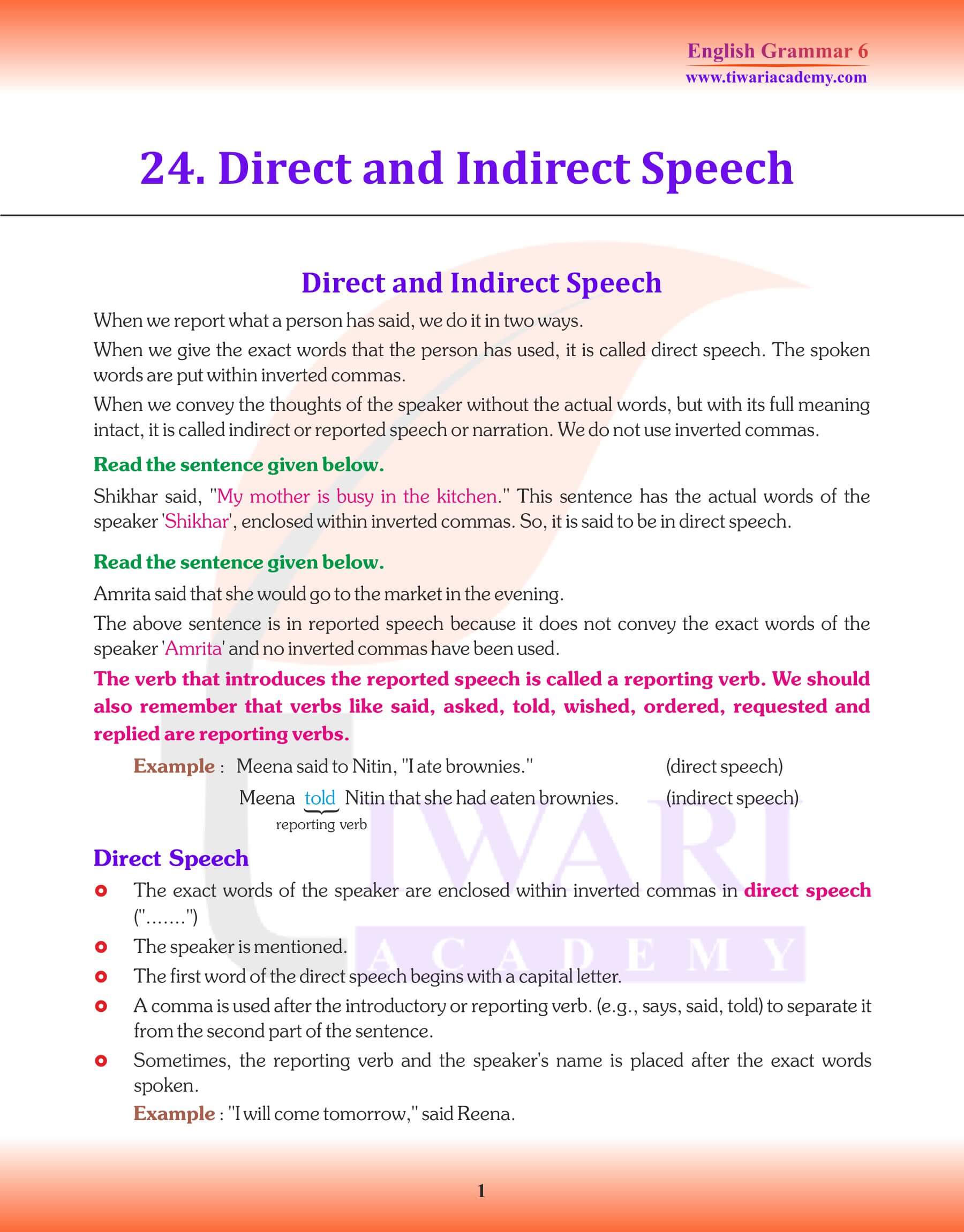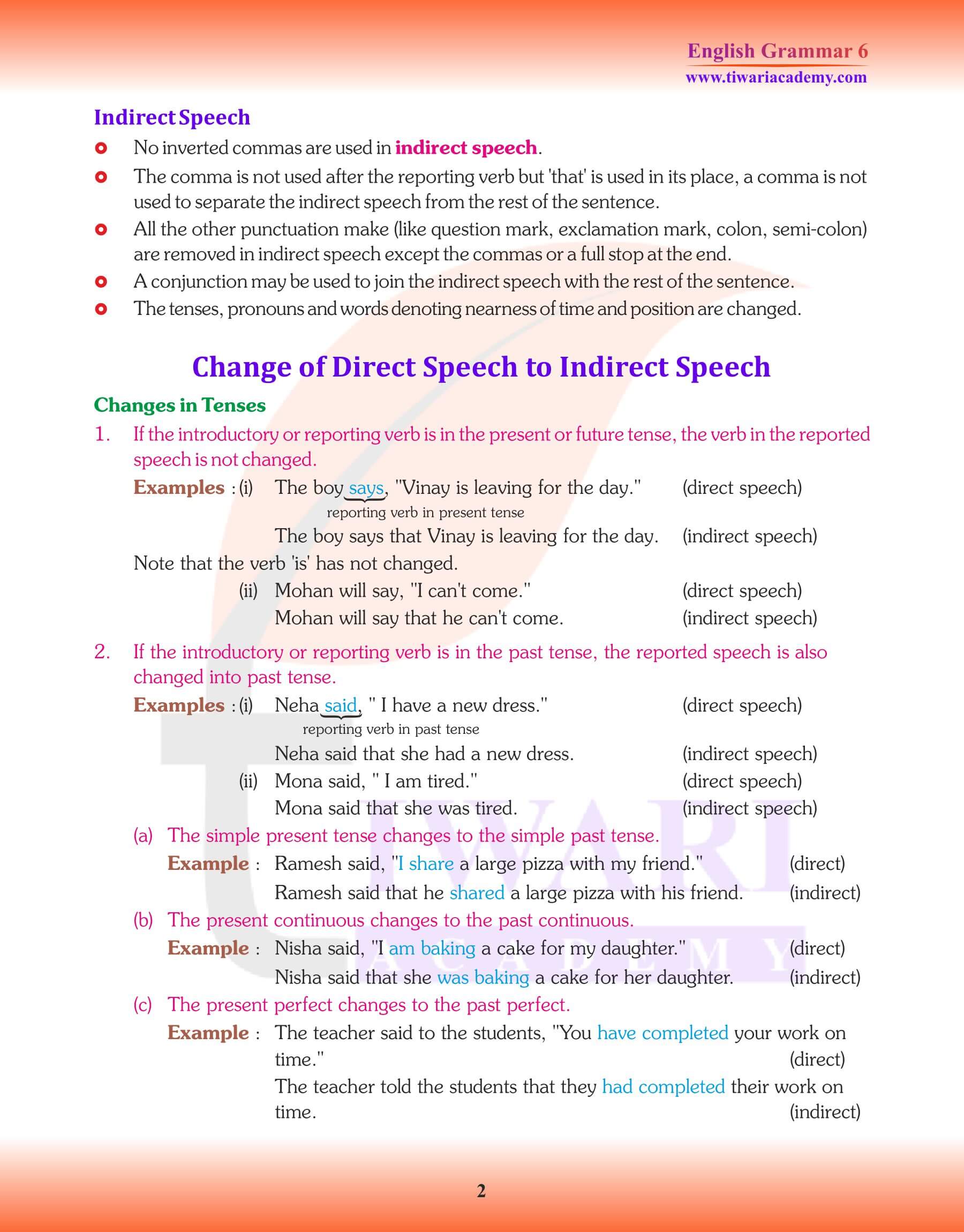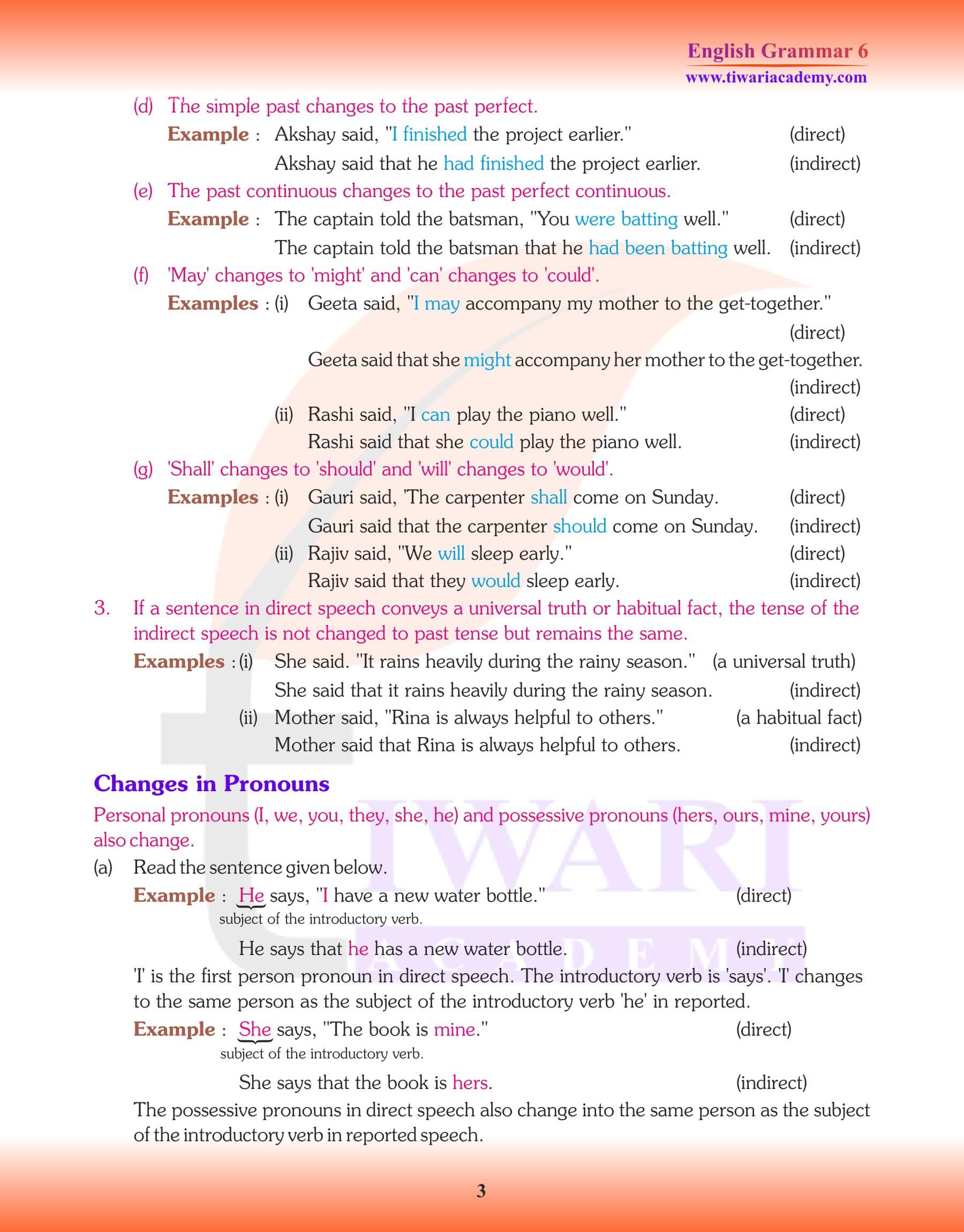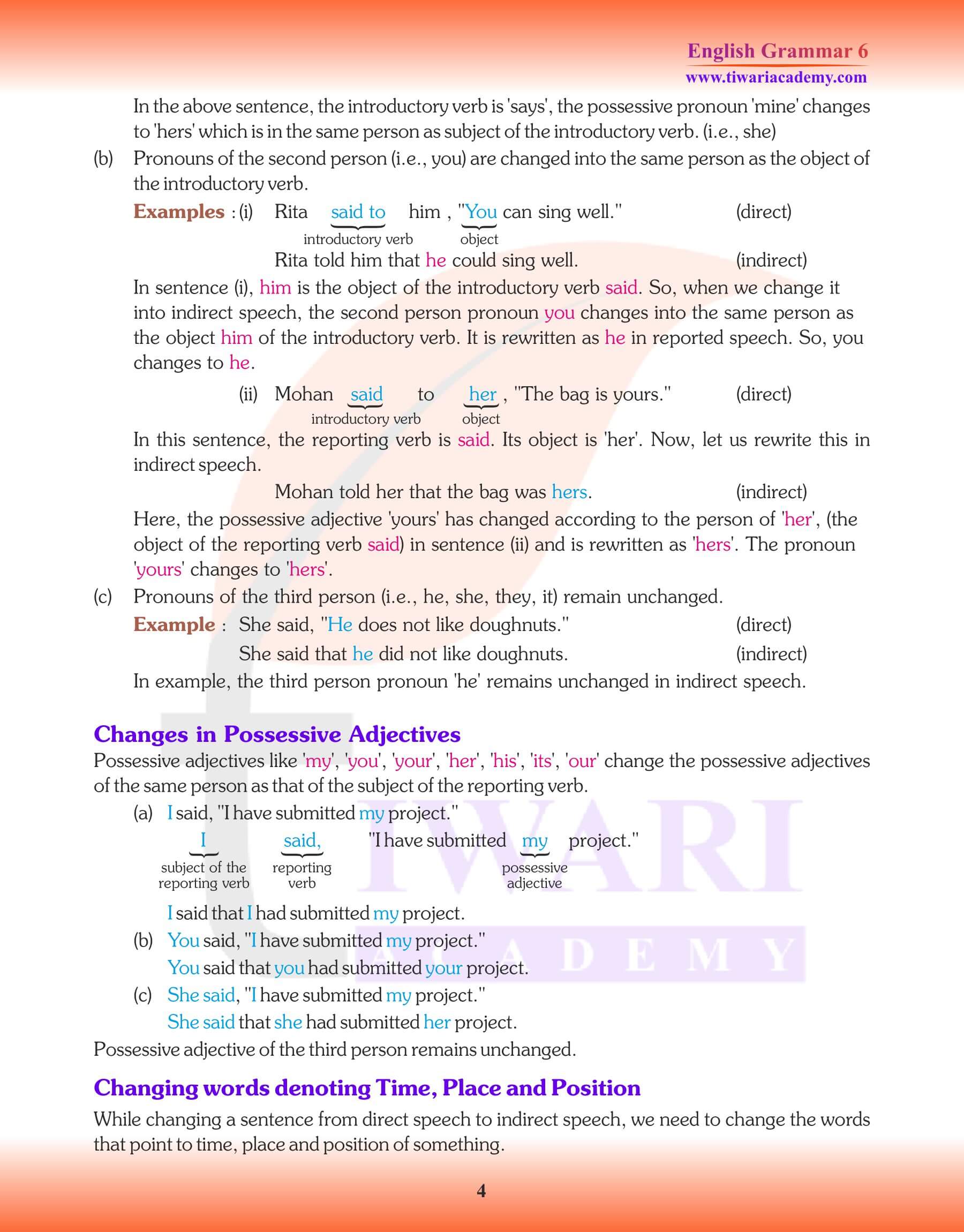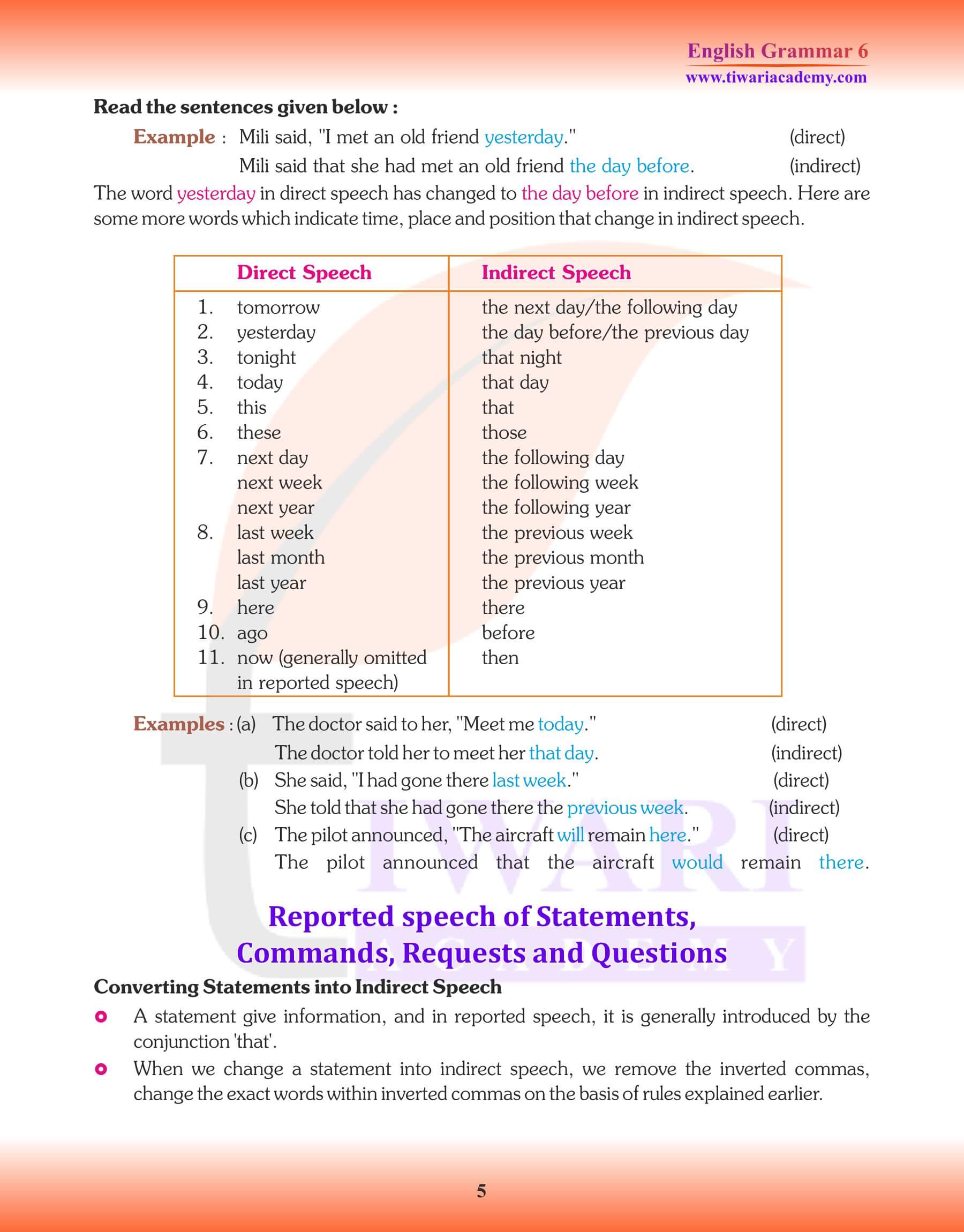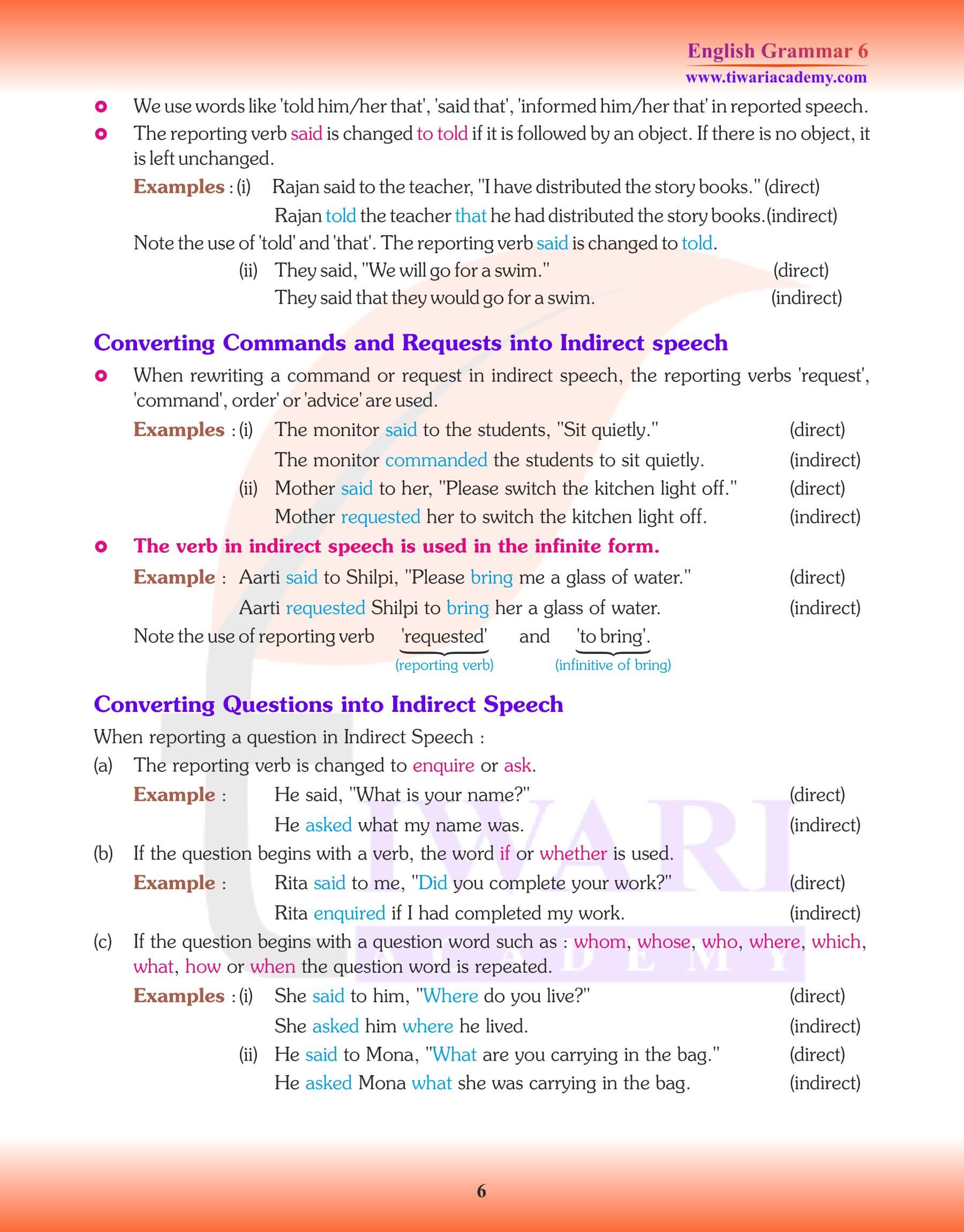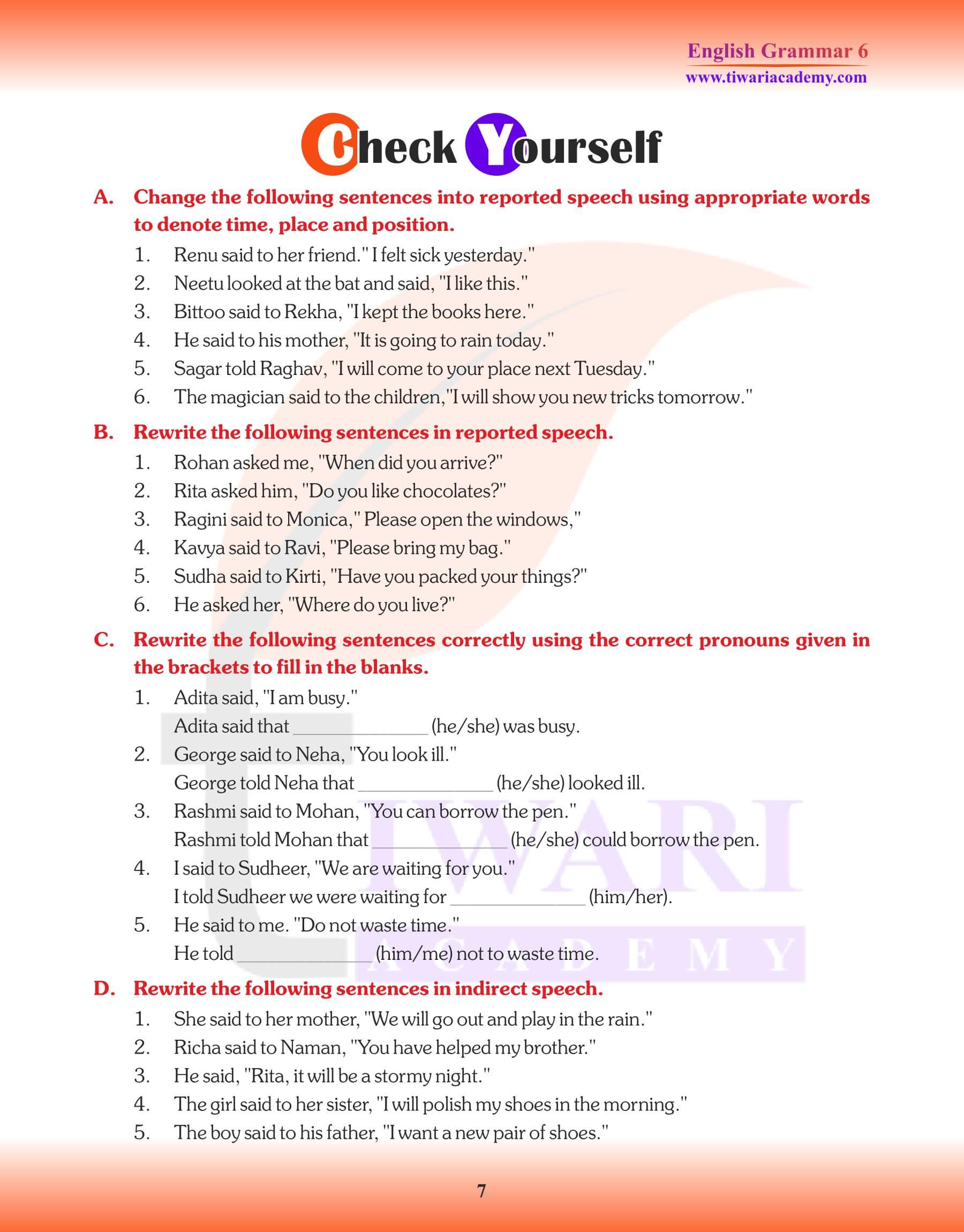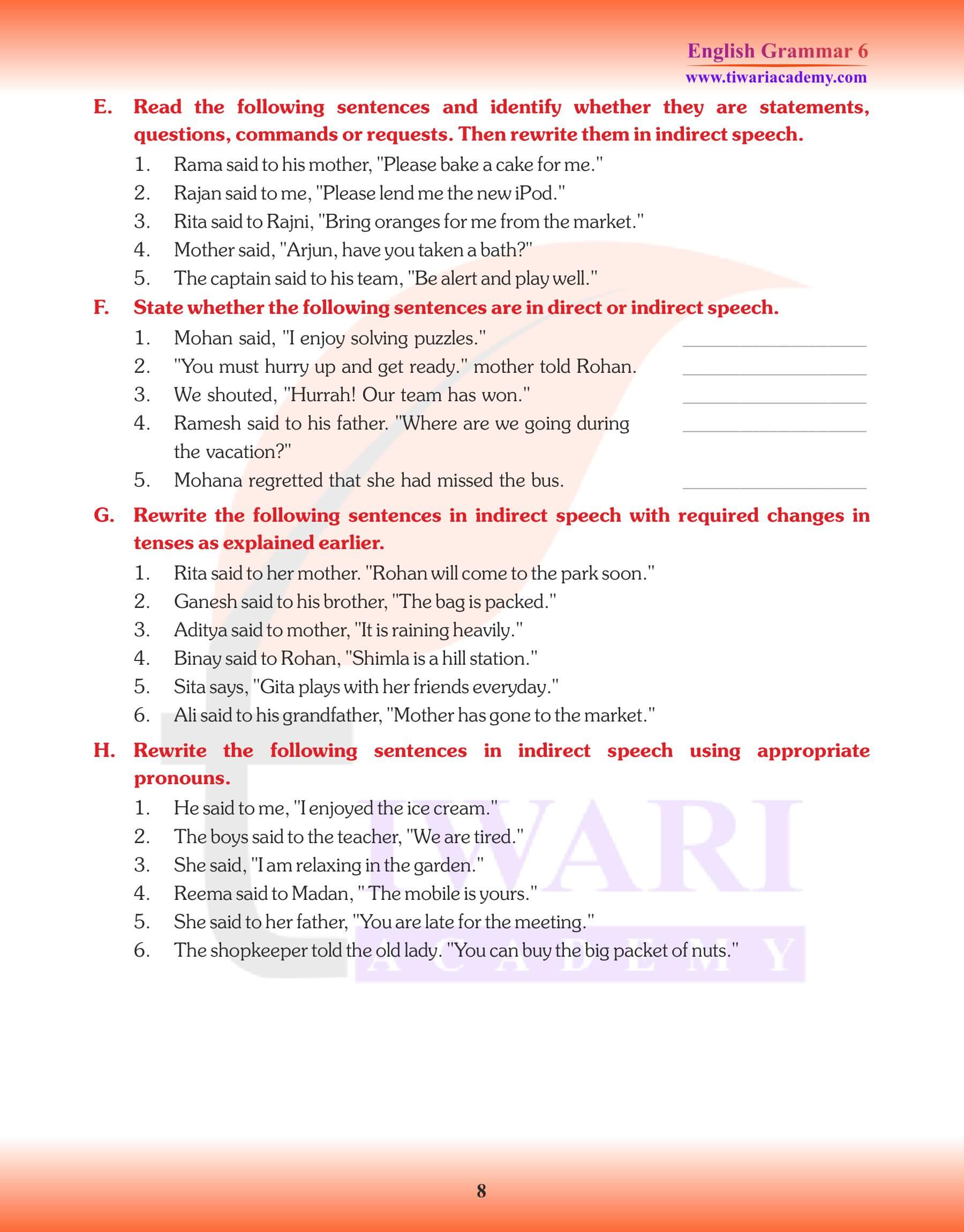Class 6 English Grammar Chapter 24 Direct and Indirect Speech. The word—speech—means whatever we speak or write. Speaking or writing the words of an another person can be done in two ways, 1. by repeating the words of the other person as they were, 2. by stating the meaning of the words of the other person in your own words. Suppose Aman speaks the words: “I am ill today.” Any person other than Aman can express his words in the following two ways: (a) Either he says: Aman said, “I am ill today.” (b) Or he can say: Aman said that he was ill that day.
Class 6 English Grammar Chapter 24 Direct and Indirect Speech
| Class: 6 | English Grammar |
| Chapter: 24 | Direct and Indirect Speech |
| Content Type: | Textbook and Revision Notes |
| Session: | 2025-26 |
Direct Speech
Aman said, “I am ill today.” In this sentence, the very words of the speaker, i.e., “I am ill today” are quoted
within inverted commas (” “). This is called the Direct Speech. The sentence within ” ” is called reported speech. The verb that introduces the reporting speech is called reporting verb.
INDIRECT SPEECH
Aman said that he was ill that day.
In the above sentence, we have reported what the speaker said, i.e. he was ill that day without quoting the exact words. This is called Indirect Speech. Carefully Read the following points:
In Direct Speech:
1. The Reported Speech is put within Inverted Commas (” “).
2. The first word of the Reported Speech begins with a capital letter.
In Indirect Speech:
1. Inverted commas are not used for the Reported Speech It is generally introduced by the conjunction that, if, etc.
2. The comma separating the Reporting Verb from the Reported Speech is removed.
3. The tense of the Reporting Verb is never changed.
RULES FOR THE CHANGE OF TENSES
Conversion of Assertive Sentences into Indirect Speech
Rule: If the Reporting Verb is in the Present or Future Tense, the tense of the verb in the Reported Speech is not changed at all as,
| Direct | Indirect |
|---|---|
| I say, “Reena is a student.” | I say that Reena is a student. |
| He says, “She is a nurse.” | He says that she is a nurse. |
| I shall say, Ayush is a doctor.” | I shall say that Ayush is a doctor. |
CHANGE IN TENSES
Rule: If the Reporting Verb is in the Past Tense, the tense of the R.S. will change as under:
Simple Present changes into Simple Past:
Direct: He said, “Sandhya sings a nice song.”
Indirect: He said that Sandhya sang a nice song.
Present Continuous changes into Past Continuous:
Direct: He said, “The girls are picking flowers.”
Indirect: He said that the girls were picking flowers.
Present Perfect changes into Past Perfect:
Direct: Father said to me, “It has been raining since morning.”
Indirect: Father told me that it had been raining since morning.
Simple Past changes into Past Perfect:
Direct: I said to him, “They enjoyed the magic show.”
Indirect: I told him that they had enjoyed the magic show.
Past Perfect and Past Perfect Continuous are not changed:
Direct: She said, “He had not seen the Taj before.”
Indirect: She said that he had not seen the Taj before.
Shall and will of future tense become should/would:
Direct: I said to her, “I shall help Sagun”.
Indirect: I told her that I should/would help Sagun.
All Present Tenses change into their corresponding Past forms:
is, am become was can becomes could
are becomes were may becomes might
has, have become had was/were become had been
The forms of could, should, would, might, had are not changed:
Direct: I said to him, “I am a poor man.”
Indirect: I told him that I was a poor man.
CHANGE OF PRONOUN
Pronouns of the first person change according to the person of the Subject of the Reporting Verb:
Direct: I said, “I have done my duty.”
Indirect: I said that I had done my duty.
Rule: Pronouns of the third person remain unchanged.
Direct: I said, “He has done his duty.”
Indirect: I said that he had done his duty.
CHANGE OF WORDS DENOTING TIME AND POSITION
here becomes there this becomes that
ago becomes before today becomes that day
thus becomes so now becomes then
CONVERSION OF QUESTIONS INTO INDIRECT SPEECH
1. The Reporting Verb is changed to asked, enquired, demanded etc.
2. Whether or if is used if the R.S. begins with a Helping Verb or a Modal Auxiliary
like do, does, did, is, am, are and can, could, should, would etc. in place of
comma and inverted commas.
3. All questions beginning with interrogative words like how, what etc. remain unchanged.
4. The Interrogative form is changed into assertive form. The Question Mark is dropped.
5. Tenses, Pronouns and Words denoting nearness are changed according to the rules already stated.
Direct: 1. He said to me, “Do you take tea?”
Indirect: He asked me if I took tea.
